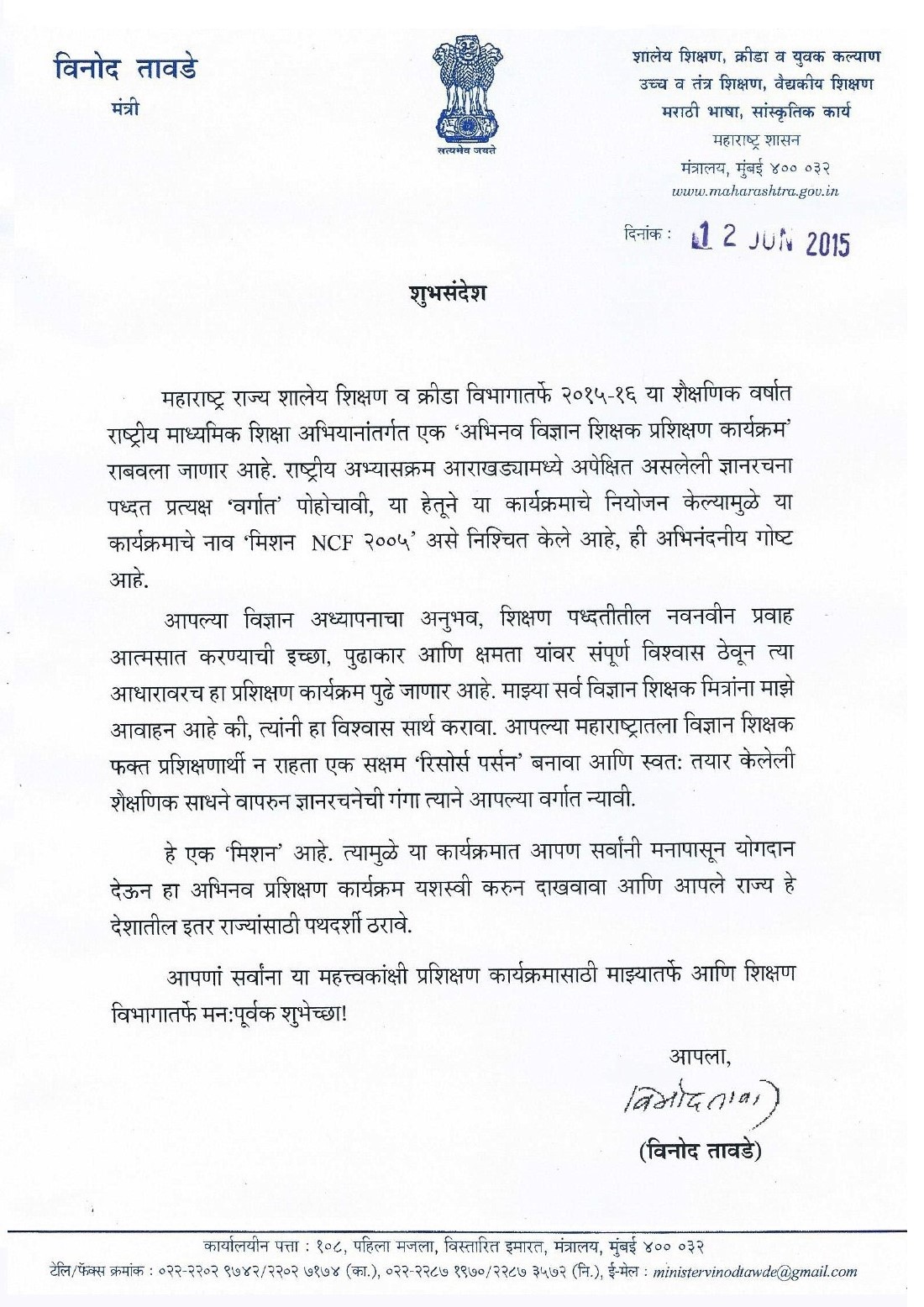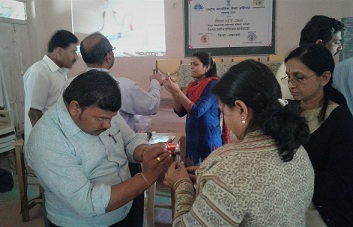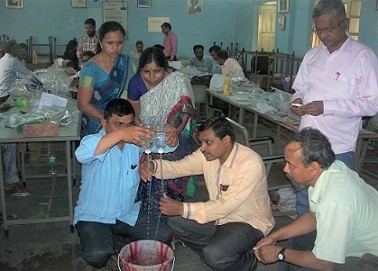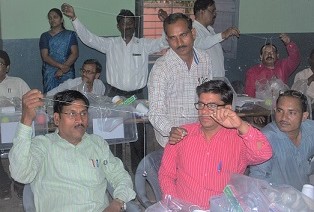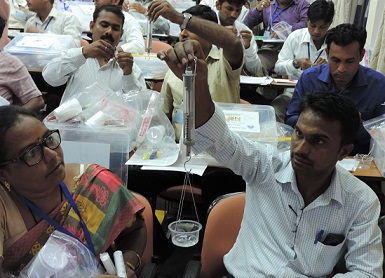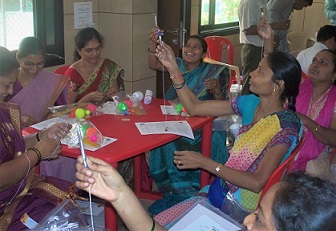|
English | मराठी | ||||||
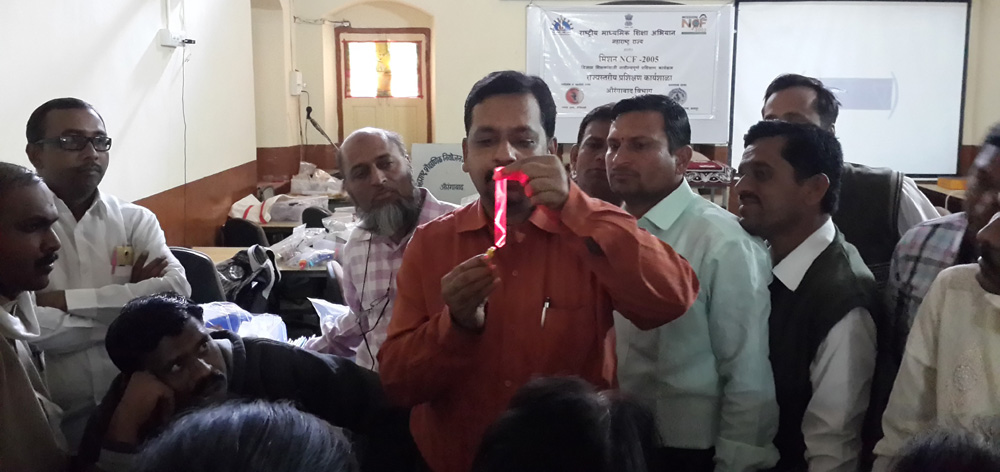
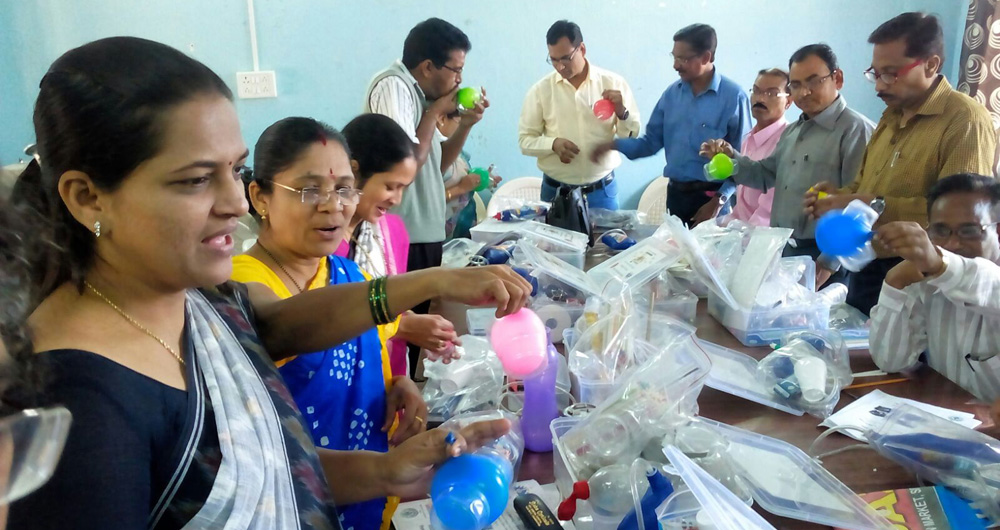
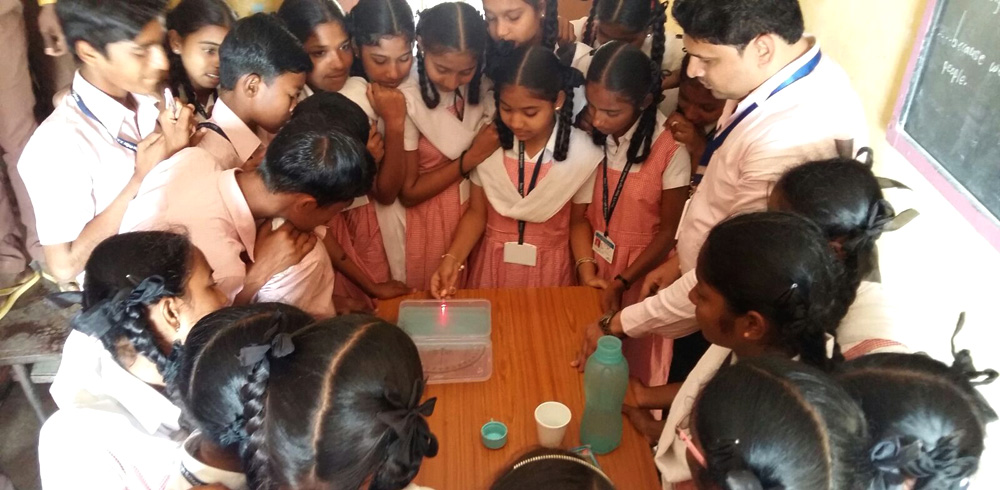
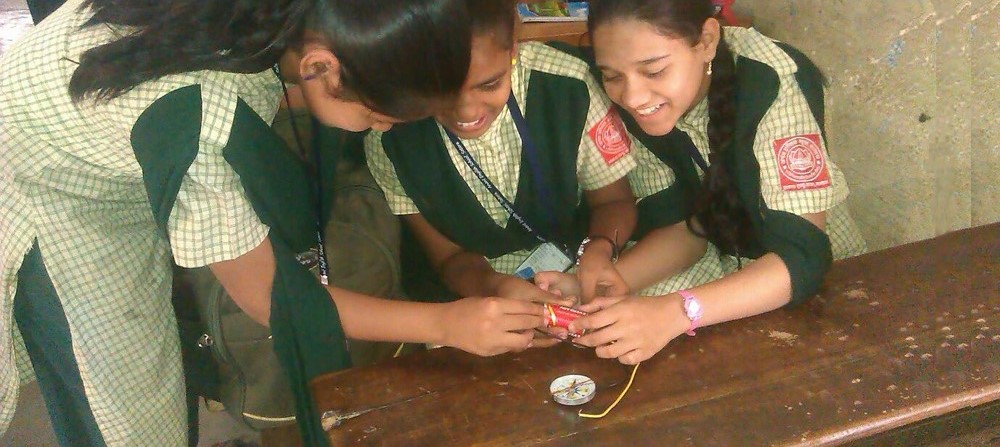
| Mission NCF - Teachers' Training Programme | ||||||||||||||
National Curriculum Framework (NCF - 2005) and State Curriculum Framework (SCF – 2010) emphasized emphasized a constructive approach to science learning. Several government organizations such as NCERT, along with numerous non-governmental organizations and individual educationists, have developed experiments, activities, and kits to support teachers in implementing this approach in the classroom. Many of these organizations, including government bodies, conducted teacher training workshops to demonstrate how these experiments could be effectively used in teaching. However, it was observed that although teachers responded positively to these workshops, the constructive approach to knowledge was not being reflected in the actual teaching-learning process in classrooms. To address this, a different module was developed and tested in 15 schools as a pilot project under the guidance of Hemant Lagvankar. (Read the Project Report) |
||||||||||||||
| Following the successful completion of the pilot project, the Department of Education, Government of Maharashtra, decided to implement the training program across the state under the Rashtriya Madhyamik Shiksha Abhiyan (RMSA). Hemant Lagvankar was appointed as the Principal Investigator for the training program. NYASS Trust served as the coordinating agency, and the State Institute of Science and Mathematics, Ravinagar, Nagpur (now known as Regional Academic Authoiry, Nagpur), acted as the supporting organization. | ||||||||||||||
|
||||||||||||||
The first phase of the training programme was completed in the year 2015–16, during which 1,060 secondary school teachers were trained through 44 two-day workshops. Each teacher received a kit containing raw materials for preparing learning aids. Over the course of the workshops, teachers explored various concepts from the school syllabus through hands-on activities and experiments. Click Here for Teachers' Manual of Training Programme (Bilingual) |
||||||||||||||
The training programme module was well received by participating teachers and government officials from the education department. The first phase of the training also produced 30 resource persons from each district to support the subsequent levels of the programme. Read : Project Report of Phase-I Mission NCF Training Programme 2015-16 |
||||||||||||||
|
||||||||||||||
After evaluating the effectiveness of Phase-I of the training programme, the Government of Maharashtra launched Phase II in the year 2017–18, during which 12,886 secondary science teachers were trained. Over 300 workshops were conducted simultaneously across various locations in the state within a span of approximately four months, with the support of the District Institute of Education and Continuous Professional Development (DIECPD) / District Institute of Education and Training (DIET) in each district. Significantly, the teachers who had completed the training in Phase-I took on the responsibility of training their peers within their respective districts. These teachers not only became ‘resource persons’ but also valuable assets to the state’s education system. This kind of training module, implemented on such a large scale for the first time in the country, proved to be highly effective. |
||||||||||||||
| Read : Report of Mission NCF Training Programme 2017-18 | ||||||||||||||
| Read : Consolidated Note on Mission NCF Training Programme | ||||||||||||||
Initiative from Other Organizations The training programme gained popularity, and many organizations and institutions requested that these workshops be conducted for them. • Pashchim Khandesh Bhilla Seva Mandal, Nandurbar organized this workshop on July 10–11, 2015, during which 24 teachers working in tribal schools were trained. • Kawish, Mumbai organized two such workshops on August 29–30, 2015, and October 17–18, 2015, through which 52 teachers from Urdu medium schools were trained. • Pratham, Mumbai organized a workshop on October 14–15, 2015, with the support of Vigyan Prasar, Department of Science and Technology, Government of India, New Delhi. The workshop was held at the Homi Bhabha Centre for Science Education, Mumbai, and a total of 44 teachers were trained. • Vigyan Prasar, under the Department of Science and Technology, Government of India, provided a grant to conduct two workshops for teachers working in tribal schools. These workshops were held on February 15–16, 2016, in Chandrapur, and on February 25–26, 2016, in Palghar. A total of 39 teachers were trained in Chandrapur and 46 in Palghar. |
||||||||||||||
Impact • Enhanced teacher competencies in delivering activity-based science education. |
||||||||||||||
Recognition in an international Textbook This innovative training programme for the capacity building of science teachers has been recognized in a textbook titled, 'Social Marketing in Action'. The book is published by Springer Nature, Switzerland, a leading academic and educational publisher that serves the needs of researchers, students, teachers, and professionals worldwide. The textbook Social Marketing in Action offers students real-world social marketing case studies from various countries and regions, bridging the gap between classroom theory and practical application. It features a case study titled 'Use of Social Marketing to Improve Science Teaching in Maharashtra, India: 2014–18', authored by Prof. Sameer Deshpande from Griffith University, Nathan, Australia. |
||||||||||||||
|
||||||||||||||

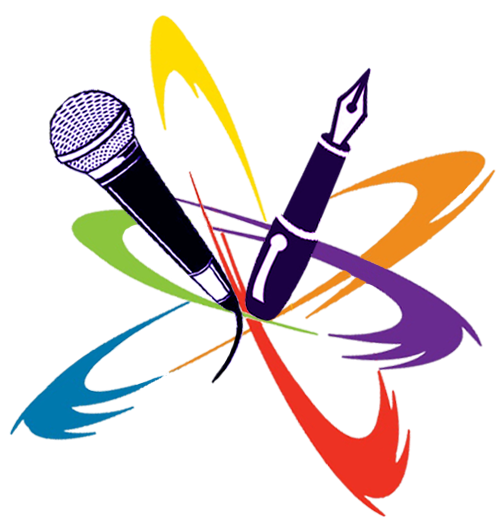
 Profile
Profile